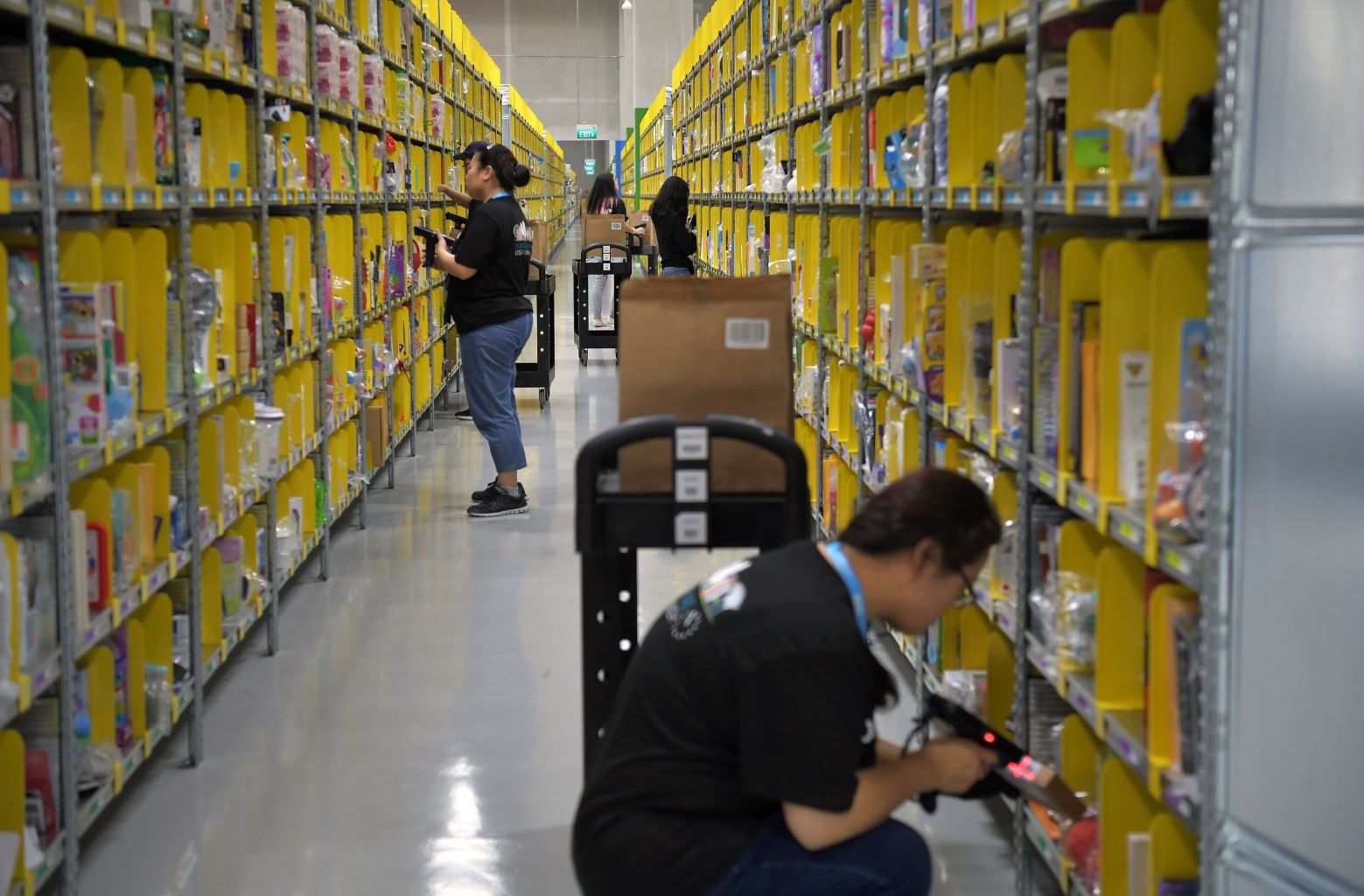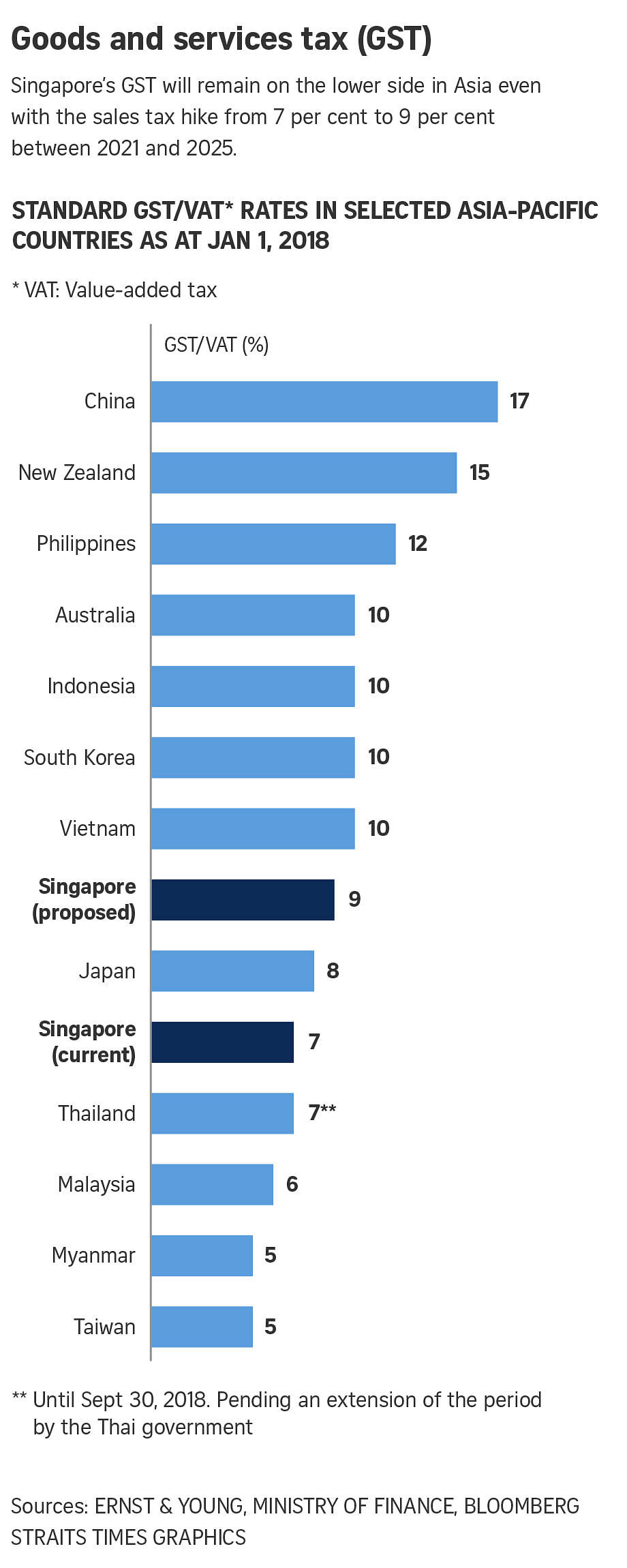Singapore Budget 2018: GST to be levied on imported services from Jan 1, 2020
Sign up now: Get ST's newsletters delivered to your inbox

Staff from e-commerce platform Amazon preparing orders at their Prime Now facility, their largest global Prime Now facility located at the Mapletree Logistics Hub on Toh Guan Road East.
PHOTO: ST FILE
Lydia Lam
Follow topic:
SINGAPORE - From Jan 1, 2020, consumers and businesses who buy imported services from suppliers based overseas which have no establishments in Singapore will have to pay goods and services tax (GST).
The GST, which does not affect e-commerce for goods such as online shopping, will be levied on two types of services: business-to-business (B2B), such as marketing services, accounting services and IT services; and business-to-consumers (B2C), including video and music streaming services, apps and online subscription fees.
Overseas suppliers which have establishments in Singapore do not need to pay the new tax.
The move comes after industry consultations by the Ministry of Finance and the Inland Revenue Authority of Singapore (Iras), which are set to continue.
B2B imported services will be taxed via a reverse charge mechanism, while B2C imported services will be taxed under an overseas vendor registration model.
Reverse charges and overseas vendor registration are commonly used in other places that impose GST on imported services, for example, Australia, Japan, South Korea and New Zealand.
Under the B2B reverse charge mechanism, the local GST-registered business is required to account for GST to Iras on the services that it imports, as if it were the supplier.
Businesses which use imported services to make taxable supplies of goods and services can make claims for full GST refunds on those services.
However, businesses that use imported services to make non-taxable supplies of goods and services can make only partial GST refund claims for those services.
These businesses, which are mainly banks, financial companies, mixed and residential property developers and holding companies, will need to apply the reverse charge.
B2C imported services will be taxed through the overseas vendor registration model.
Under this model, overseas vendors whose annual global turnover exceeds $1 million and who make more than $100,000 in the sale of digital services to consumers in Singapore must pay GST.
Overseas suppliers and electronic marketplace operators such as app stores which make significant supplies of digital services to Singapore customers must register with Iras. Once they have registered, they will collect GST for Iras on their B2C supplies of digital services.
For example, a GST-registered overseas music streaming service without an office in Singapore will have to charge GST on its sale to a Singapore consumer who buys an online music subscription.
The company will then account to Iras for the GST collected.
Iras will release drafts of a guide on e-tax by the end of this month.
GST is levied on the import of all goods into Singapore, except where the goods worth less than $400 are imported via air or post, such as via online shopping.
The Government is reviewing international developments before deciding on measures to take regarding the collection of GST on such low-value imported goods.
Australia plans to tax low-value goods sold via e-commerce from July by requiring overseas suppliers to register and collect GST on goods valued below its threshold of A$100 (S$103).
Switzerland plans to follow suit from 2019, and countries in the European Union from 2021.


